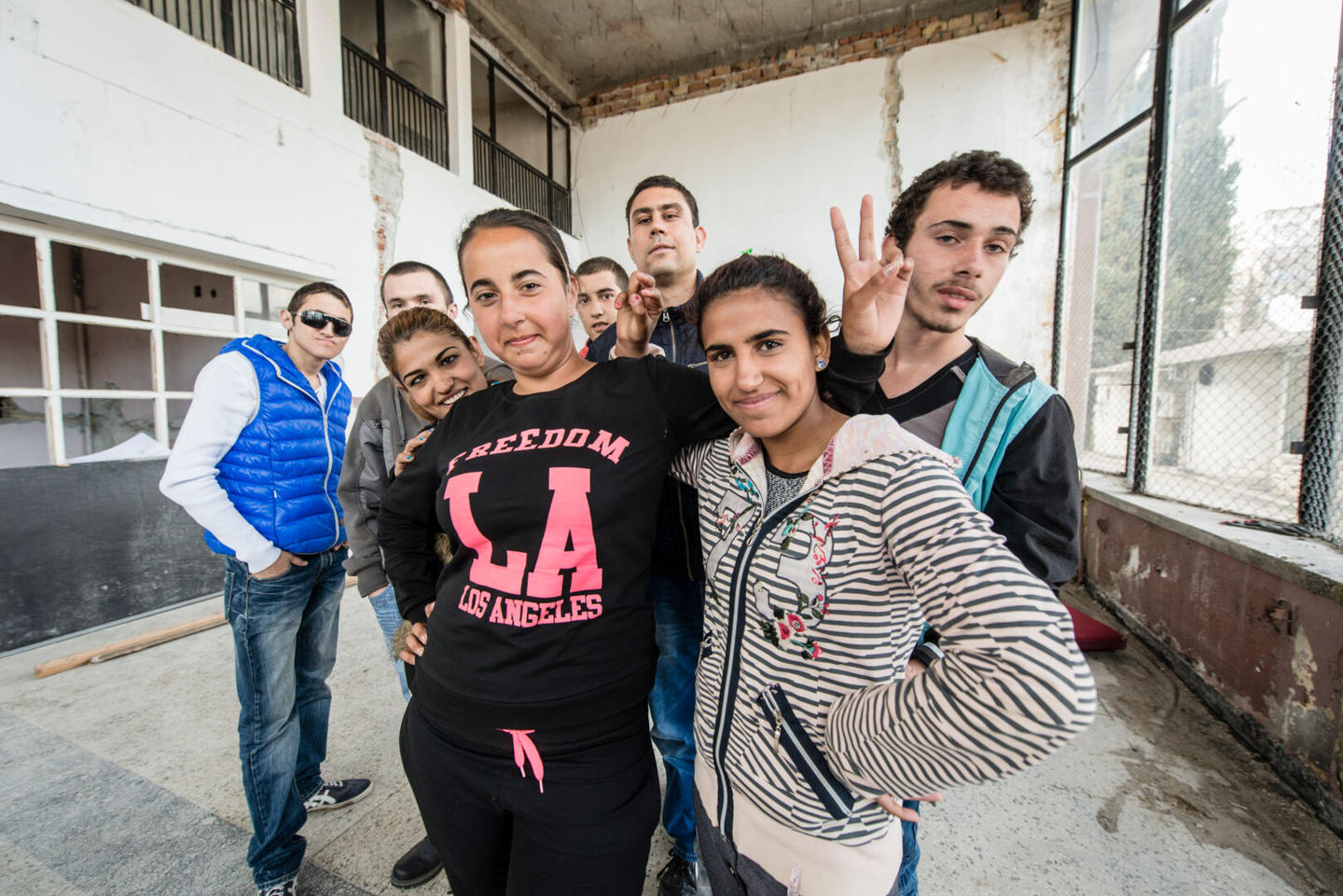Last year, we shared the stories of some of the initiatives we support to empower Roma communities throughout Europe. In one of these stories, we introduced Alex Fechete, who participated in a project involving social housing in the metropolitan area of Cluj in Romania. This year, we thought it was time to catch up with him. Read on to find out how he’s doing now.
How it started: Life in Pata Rât
Pata Rât is a community of about 1700 people and 1200 minors - mostly from the Roma community - who were victims of an eviction from their homes in the city of Cluj. Housing conditions in this settlement are poor: in 2017, 67% of the houses were makeshift barracks, 90% did not have a bathroom or kitchen, and 96% was overcrowded.
Alex lived in Pata Rât until the Pata-Cluj project enabled him and 35 other families to move into social housing in 2017. “Housing is the base of everything,” he says about that time. “As I got back in the city, everything came back to me”.
At the beginning of this year, the original project continued under the informal name of Pata 2.0., now with Alex as a team member. As a participant from the very beginning, he knows better than anyone how important the project is. “When you are Roma and live in Pata Rât, you rarely get the chance to get out. This is a way to offer hope. To give someone the chance of a decent life.”
With the people, for the people
As a community facilitator, Alex translates the needs of the community into action points for the teams in the project to implement. This inclusive set-up, where community members have a say in how things are done, and their perspectives are embedded into the system, is what makes the project unique. It is the reason for its success, says Alex: “It’s because we are involving people from the Roma community. We are working with them, for them. We are there, we are present, we are part of it.”
Although participation is core to the project, it can be hard to keep the community involved. After years of disadvantage and exclusion, there is an understandable lack of trust among the residents. “This was especially a challenge in the first project: people need to see change before they believe it. But I am also a Roma person, and I was living there for 7 years. When I moved away, I saw how sad my neighbors were - that they didn’t apply for housing. There are now more families willing to try.
Alex stays in touch with most of the families that moved away from Pata Rât. Staying involved enables the teams to intercept possible issues at an early stage, and take action where it’s needed. The results of the project, the continued presence of the teams, and the visible impact on the lives of previous participants, lead to more involvement from the community, every day a little more. “When you work with the community, you need to be practical, be present and keep your promises.”
The foundation for the future
The approach is hands-on and practical. The municipality buys new apartments, and the teams at Pata 2.0 inform the community of their possibilities for applying. “About 3 months before the families move, we inform them about the rules, the possibilities, and are transparent about who has the best chance.”
But housing is only the start of things. In addition, the project also offers ongoing support in the field of education, healthcare, and other community services. It’s all connected,” says Alex, “There are no schools close to Pata Rât. We make sure there are people who collect the children, bring them to school, and get them back safely. We have a schoolteacher here who can help with homework. If someone drops out, we will try to get them back in. This is the first generation that goes to school, and that offers a new outlook to the Roma people.”
In combination with the new steps taken by the municipality to increase social housing, this growing receptivity causes Alex to be optimistic about the developments. “This year we hope we can have 30 or more houses. It's a huge change for hundreds of people and children. They had no future, and now they do.”
--
About the project:
From Pata-Cluj to Pata 2.0
The full name for Pata 2.0 is: “Replicable integrated interventions for inclusive housing and tackling marginalization in the Cluj Metropolitan Area.” It offers a hands-on approach to reduce housing, social and economic inequalities and combat the risk of social exclusion among poor families in the metropolitan area of Cluj. Pata 2.0 is a continuation of the project Pata-Cluj, which ran from 2014 to 2017.
Other activities so far:
- Distributed 3350 free food packages distributed during the COVID-19 lockdown
- Organised tutoring, mentoring, and other activities for more than 70 students
- Established a Social Centre, with 430 adult beneficiaries enrolled
- Registered nearly 30 children with family doctors
- 12 mothers participated in childcare support groups
- 4 community consultations and 282 structured interviews took place, covering around 90% of households in the area.
Find more information about the project on the project website, or read more about the project on our site.
Curious to know more about what we do for Roma inclusion?
Improving the situation of Roma across Europe is a priority of the EEA and Norway Grants. In total, an indicative minimum of € 50 million is allocated to Roma inclusion through programmes in the sectors of health, local development, children and youth at risk, justice and home affairs, culture, research, and civil society. Special focus is placed on countries with large Roma populations – Bulgaria, the Czech Republic, Greece, Romania and Slovakia.
Find out more about the EEA and Norway Grants’ support to Roma inclusion and empowerment
